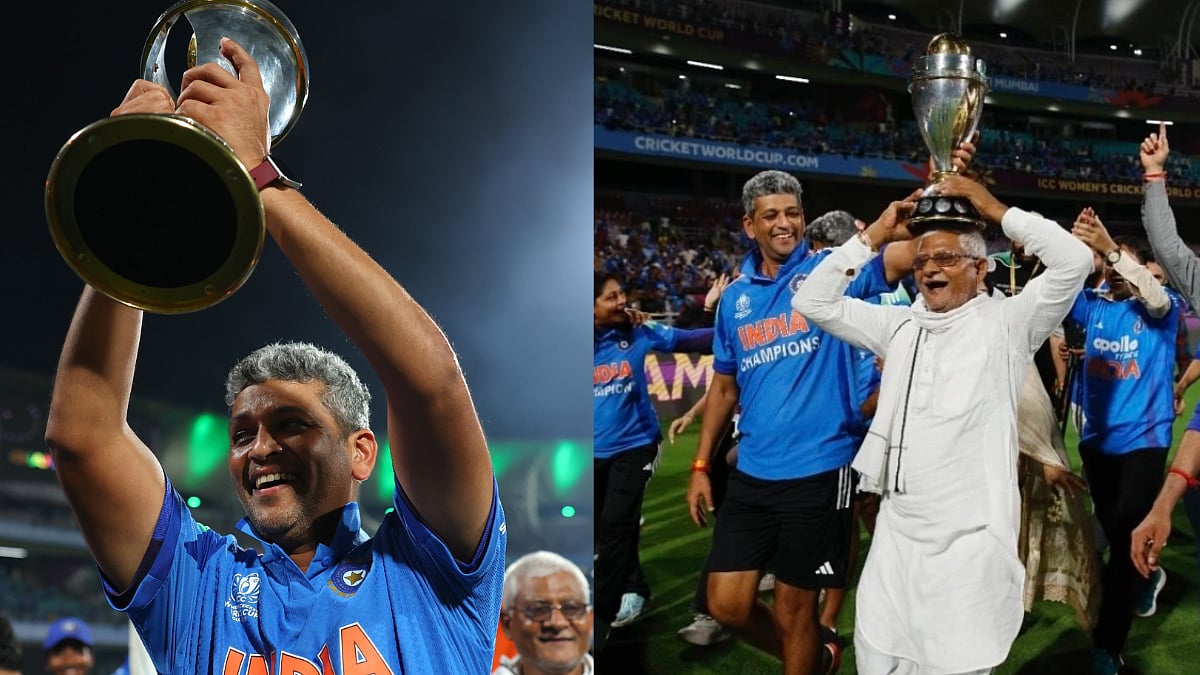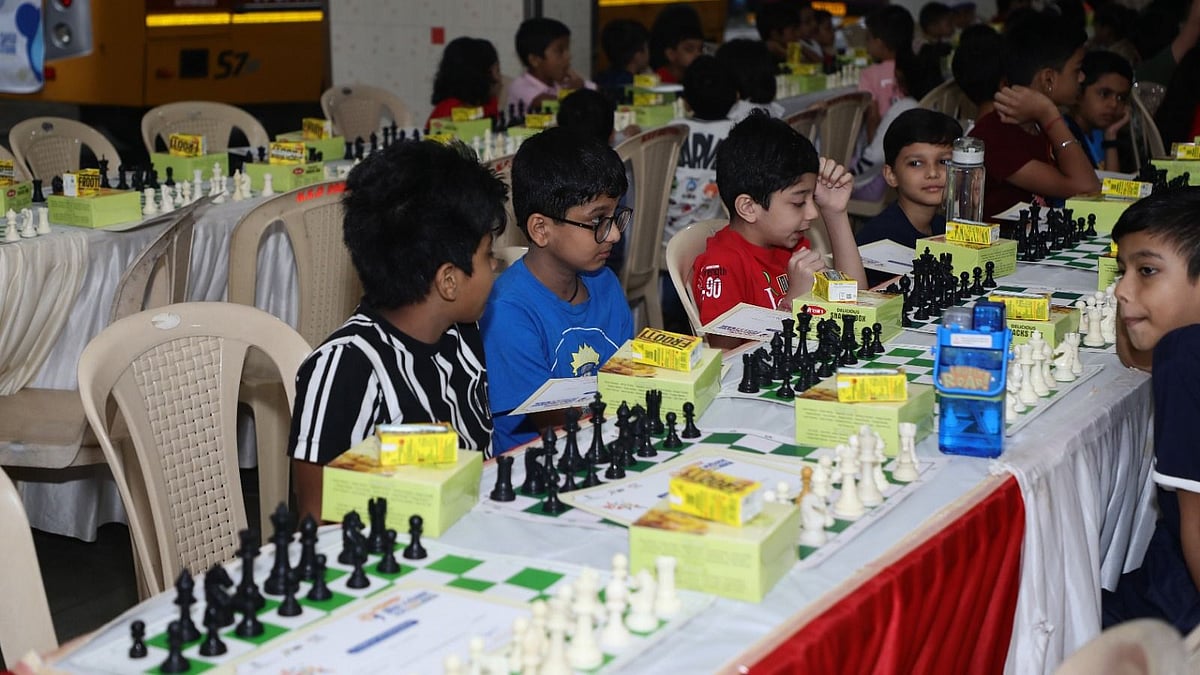He waited once — for Sachin Tendulkar and Vinod Kambli — as the teenage prodigies created history with a world-record partnership of 664 runs in the Harris Shield inter-school match at Shivaji Park in 1988. Amol Muzumdar, next in line and padded up for hours, never got a chance to bat that day.
He waited again, for the India cap that never arrived — despite years of consistent performances, an outstanding domestic record, and a reputation as one of the finest uncapped players of his generation. Yet when destiny finally came calling, it did so in another form — not through a bat in his hand, but a clipboard in his grasp, and a team that believed in his quiet conviction.
Inside the Indian women’s dressing room, just before the World Cup final, there was a simple message written on the board: “Just One Run.”
It summed up the spirit of the side and the mindset their coach had instilled, calm, focused, and determined.
And as the Women in Blue triumphed in dramatic fashion over South Africa at the DY Patil Stadium on November 2, the message took on poetic meaning. India had won their maiden ICC Women’s World Cup — and Amol Muzumdar, the coach who once waited endlessly for his own big moment, finally had his day of glory.
“What I couldn’t achieve as a player, I’ve been blessed to experience as a coach,” Muzumdar said moments after the win. “This moment belongs to the girls. I only stood outside the boundary ropes, they were the real stars.”
For the 50-year-old Mumbaikar, who once shared dressing rooms with Sachin Tendulkar, Rahul Dravid, and Sourav Ganguly, the victory marked the culmination of a journey built on discipline, perseverance, and faith. It was also the most memorable birthday gift he could have asked for, coming just days after his special day. He was born on November 11, 1974.
Appointed head coach of the Indian women’s team in October 2023, Muzumdar brought with him the same methodical approach and calm temperament that defined his playing career. Under his guidance, India’s women’s cricket underwent a visible transformation, in mindset, professionalism, and preparation. Players often spoke about his attention to detail, tactical clarity, and ability to bring out the best in individuals without imposing himself on the dressing room.
A product of Sharadashram Vidyamandir, the cradle of Mumbai cricket — and a protégé of the late Ramakant Achrekar, Muzumdar’s story is inseparable from the city’s cricketing fabric. After representing Mumbai with distinction and scoring over 11,000 first-class runs, he went on to play for Assam, Andhra, and later Goa, becoming one of the most respected domestic cricketers of his era.
Following his retirement, Muzumdar turned to coaching, bringing the same discipline and insight that once made him a prolific batsman. He served as batting consultant to South Africa’s national team, worked with Rajasthan Royals in the IPL, and also had a stint with the Netherlands. Those experiences broadened his understanding of modern cricket and prepared him for the national assignment that would define his legacy.
Colleagues describe him as a coach who believes in quiet preparation and leading by example. “He doesn’t raise his voice; he raises standards,” said a member of the Indian support staff. “He reminds players that success is not about shortcuts, but about patience — something his own life embodies.”
Now, that patience has finally been rewarded.
What destiny denied Amol Muzumdar as a batsman, it has returned to him in full measure — as a World Cup-winning coach, in the city where his cricketing dreams first began.









